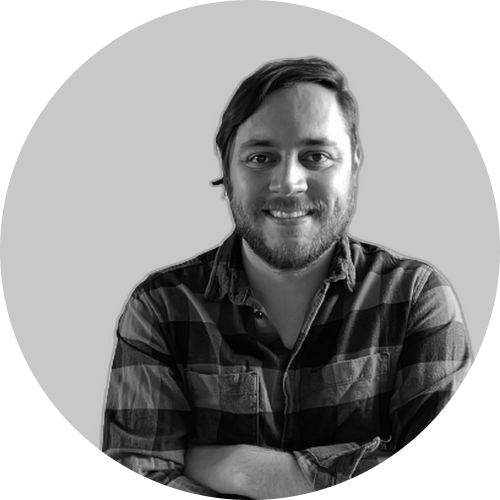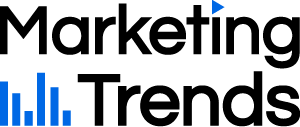Nicolas Vargas

At Marketing Trends, we are discovering what drives Australia’s top marketers. Nicolas Vargas is Head of Growth at Safewill, an end-of-life digital platform that recently closed its Series A round. In this interview, Nicolas tells us about his role leading the startup's growth, the challenge of finding the right balance between machines and marketing, and how the pandemic accelerated the startup's product-market fit.
Career & professional background
Nicolas, how did your career in marketing start?
I took a Digital Marketing Subject at Uni 10 years ago when I was studying Industrial Engineering in South America. I fell in love with the idea of using a range of tech to identify people’s motivation and influence their behaviour. So after taking that class, I realised Digital Marketing was what I wanted to do with my career.
Back then, Digital Marketing was still in an early stage of development in South America, so I decided to move to Australia, where the industry was already thriving.
My first gig in the industry was an internship at an agency in North Sydney. I started doing paid search and SEO for small businesses, such as local hairdressers, cafes and plumbers. After two years, I moved to another agency with mid-size clients where I was able to learn about eCommerce.
4 years ago, I realised that when working in Marketing it is extremely important to understand the customer experience as a whole, not in isolation. So I decided to get into Product & Growth and was hired by a big agency. There, we had international clients, which allowed me to gain experience in analytics and content marketing.
Then, four months ago, I was hired at Safewill where I lead our Growth strategy.
If you hadn’t pursued a career in marketing, in which other industry do you think you might be?
I always wanted to be a philosopher. I think philosophy provides a framework for everyone to improve their thinking processes and get to know themselves at a deeper and productive level.
Could you tell us about your role as Head of Growth at Safewill?
Safewill is an end-of-life digital platform. We provide a SaaS product that simplifies processes that can be a bit tedious, take time and cost a lot of money.
As a startup, we were able to achieve product-market fit relatively fast. Now we are going through a transition stage. We just closed our Series A funding and our main priority now is to scale. Launching multiple products is part of that priority.
The first product we launched to market was the Will-writing platform, which takes people 10-20 minutes to fill out, depending on the complexity of their estate.
Traditionally, if someone wants to write a Will they need to get a solicitor, which can cost between $2,000 and $5,000. Our product costs $160. Two days after submitting it, one of our solicitors checks the will to make sure everything is fine from a legal perspective and comes back to our client, with the Will ready.
As all marketers know, the fundamental difference between Growth and Traditional Marketing is that the latter normally focuses on acquiring new customers. Growth actually looks at the holistic buyer & customer journey, not just acquisition.
With that being said, my job as Head of Growth involves 3 areas:
- Strategic Planning: This means analysing and deciding channels, budgets, timelines and Marketing Technology Stack we are going to use to grow.
- Tactical Work: Diving into our tools to identify patterns and ways to improve.
- Team Building: Finding and developing talent within the company. At the moment, it's three of us. A brand manager, a content writer, and we are currently hiring a performance marketer. We are also planning on employing a UX designer, a communications manager, a data analyst, and a couple developers by the end of the year.
Marketing & Industry Trends
What type of impact has COVID- 19 had on your industry?
Overall, the impact of the pandemic has been positive from a growth perspective. It’s what actually allowed us to achieve product-market fit so fast.
In a way, the pandemic was a reminder for most people that life is fragile and they gain mortality salience. It also helped people realise that it's important to have a plan in place to protect one's family. This made the demand for Wills and estate planning throughout the pandemic certainly grew.
Our current expansion phase aims to allow every Australian that needs a Will to find us. For that, we are focusing on building the strategy, identifying and defining channels and budgets. We are also setting up the company’s infrastructure and making sure that the data we have actually makes sense, so we can clearly understand their motivations & objections when they come to our website.
What is the most exciting trend or innovation happening in your field in terms of growth?
A trend that I find fascinating is Machine Learning and the way it's changing the way we work. The things we can do now with ML were unthinkable 10 years ago. For example, back then, to run a campaign on Google Ads most of the tactical tasks had to be done manually.
Now, we can set up a campaign by providing a budget, the audience, bits and pieces of creative and the tool automatically gives us the results we want.
Another aspect of ML that’s interesting is the capability of machines to process data and give back meaningful information that makes sense.
The second trend that is important in our industry is the digitalisation of legal processes and procedures. The legal industry hasn’t changed a lot in the last decades. In general, the legal industry is considered expensive and complex to understand. Yet now, there are many tech companies that are making amazing advances in the industry.
I think it’s very exciting to see that a lot of time-consuming and expensive legal processes can now be done cheaper and faster.
As a marketer, what do you believe is the biggest challenge facing your industry in the future?
Finding the balance between machines and marketers. At the moment machines are able to do most of the tactical tasks and not so much strategic decisions. Yet, this is likely to change relatively soon.
There are things that machines can certainly do better than us, like processing and data analysis. And us humans, still have a competitive advantage on anything regarding creativity. I believe that now, we have the opportunity to reinvent ourselves and find the right balance. We need to get more strategic rather than tactical to leverage the power of machines.
Tools, recommendations & sources of inspiration
Software and tools recommendations: what is the one software you can’t work without and why?
The tool I use the most is Amplitude, the product analytics tool. I highly recommend using product analytics tools, more than web analytics tools. Web ones only focus on sessions, they don't focus on the interactions of the user. With product analytics tools you can also analyse retention, activations, create funnels automatically and understand the whole customer journey.
I consider them important for any type of business. Especially if you treat your website like a product. But I'm a big fan of principles before tools. I think the market is oversaturated and people have the misconception that tools can do their job for them. And that's certainly not true.
What does a typical day look like for you? How do you structure your week?
I normally prioritise my time and resources based on the impact each activity has, from a business perspective. We have company and department OKRs that I normally monitor daily to be aware of the impact of our growth/marketing activities.
I spend Mondays looking mostly at performance, meeting up with departments/stakeholders and outlining immediate actions for the week.
Later on the week, I focus on the tactical work, in getting into the tools. I analyse what’s working for us, what’s not working, and how we can improve.
Yet, as in every startup, there’s not a “typical day”. That’s why I set two days a week aside for unforeseen situations or to focus on that week’s priority.
What brands do you take inspiration from?
I like to get inspiration from SaaS and tech companies. Notion.so is one that I really admire. Their product in terms of project management is quite good. And they also have strong content, a good sense of community and the strategies they use are pretty interesting. For example, getting ‘micro influencers’ to use the product and become brand ambassadors.
Another company I like is superhuman.com, especially their unique referral model. I used it for a while, and I think the idea is amazing. Although I did find some limitations in its use.
In terms of Australian companies, I think Amber Electric, which does smart electricity billing and Spaceship, a micro investing and superannuation funds platform, are both doing a great job.
What are three resources you would recommend for anyone working in your field?
- Slack Communities - I generally don't read many mainstream marketing blogs and I prefer reading micro-communities content. There are great Growth and Marketing communities on Slack.
- Marketing Concepts - A year ago I started writing for different marketing publications as a way to share my experiences and I ended up creating this newsletter. The concept is to reconstruct remarkable Marketing, content for busy people.
- LinkedIn - I think it's a very powerful tool. I try to follow the person responsible for the marketing strategy of brands I like. These people usually share interesting content and insights.
- Podcasts - Marketing Trends Podcast and The Breakout Growth Podcast, hosted by Sean Ellis, who coined the growth methodology.
- Books: Hooked: How to Build Habit-Forming Products by Nir Eyal; Hacking Growth by Sean Ellis and Prediction Machines, about ML and AI.


